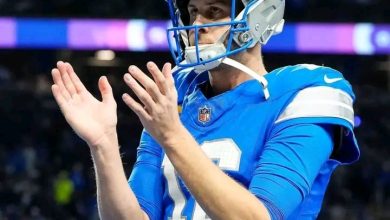Nico Harrison really saw this and said “nahhh, i think I’ll blindside him and ship him off to LA.” Luka was generational and loved Dallas. I’ve never seen a worse front office decision in any sport, ever…
The decision to trade Luka Dončić away from the Dallas Mavericks seems like a scenario out of a basketball nightmare, and it’s hard to wrap your head around how it could even happen in a professional sports environment. Luka, the transcendent talent who was destined to be the face of the franchise for the next decade, was not just a generational player—he was Dallas’ generational player. A once-in-a-lifetime combination of skill, basketball IQ, and charisma, Luka had already cemented himself as one of the most electrifying and beloved players in the NBA.
Then came Nico Harrison’s decision to “blindside” him and ship him off to LA—a move that, frankly, nobody could have predicted. The shockwaves of this trade left Mavericks fans speechless and the basketball world in disbelief. Luka had embraced Dallas, and Dallas had embraced him. From his MVP-caliber performances to leading the Mavs deep into the playoffs, everything about Luka’s tenure seemed to suggest that he was going to be the centerpiece of the team for years to come. He was everything a franchise could want: young, talented, marketable, and loyal to the city.
So, when Harrison made the call to send him off, it was a betrayal that felt personal. It wasn’t just about losing a star—it was about losing a player who genuinely loved the team and the city. Luka’s connection to Dallas transcended the court. He had become an icon. Fans rallied behind him, wearing his jersey and chanting his name, while the organization had a clear opportunity to build around him and create a championship contender. Instead, that loyalty was turned into a cold business decision.
The fact that this trade was seen as a “blindsided” move is even more perplexing. For the Mavs to make this type of decision without Luka being made fully aware or even consulted reflects a level of mismanagement that’s difficult to digest. It wasn’t just a questionable trade from a talent perspective; it was a failure of leadership. In any organization, communication between front-office executives and players is key. For a player like Luka, who had already given so much to Dallas, the lack of transparency and consideration is what stings most.
If you think about it, this isn’t just one bad front-office decision; it’s a fundamental misreading of what the franchise needed. The Mavericks had a chance to build around a generational talent. Instead, they shipped him off to LA, where he would now have the opportunity to thrive in a new environment—a place with a different set of pressures and a completely new narrative. In Dallas, Luka was the story; in LA, he became part of a bigger story.
This wasn’t just a basketball decision; it was an identity crisis for the Mavs. To make a decision like this, to dismantle what could have been an entire era of basketball dominance, is the worst kind of front-office blunder. It’s rare in professional sports to see a team have everything they need to build a dynasty and still fumble the ball. But with Luka, Dallas had a rare opportunity, one that they let slip through their fingers.
The Mavericks won’t just miss Luka’s talent—they’ll miss the connection he had with the city. What could have been a period of sustained success and excitement for the fans is now reduced to a cautionary tale of what happens when an organization doesn’t recognize what it has until it’s too late.
